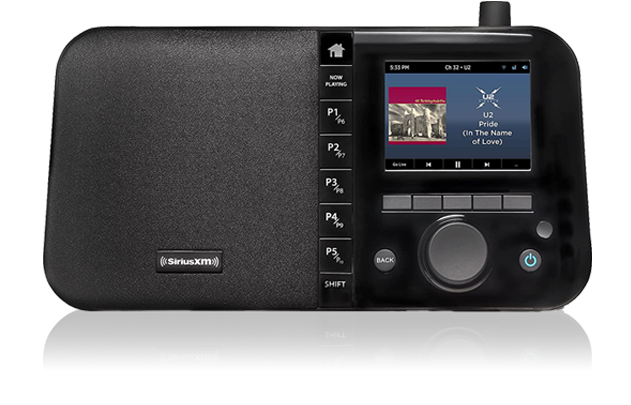Why Do Stores Play Music?
By Ryan Santangelo, Ph.D., Co-Founder & CEO, Dynamic Media
Background music for businesses like malls, restaurants and grocery stores is so ubiquitous today that we sometimes forget this wasn’t always the case. While the earliest form of music for businesses appeared in the 1930s, playing contemporary pop and other commercial music wasn’t popular until the early 1970s. In this article, we answer the question, “Why do businesses play music?” by looking at the past and present of in-store music.

A Brief History of Background Music for Businesses
At the beginning of the 20th century, coin-operated phonographs and audiophones were developed that allowed patrons to choose between a few select records or cylinders and listen to music. Playing music in a business was still a few years away as these systems were limited and bulky, existing mostly in small, dedicated music parlors and nickelodeons.
The Early Years: Muzak and the Jukebox
By the 1930s, the company Muzak began producing original background music for businesses that was sold for commercial use. The company was the first known business entity to produce exclusive music for businesses. Much of their music was arrangements of classical music and instrumental recordings of popular songs. It became so popular that “muzak” became a generic term for the style of music the company produced.
Around the same time, the development of the jukebox brought music into nightclubs, speakeasies, soda fountains and bars. The early jukebox was large and cumbersome, consisting of only 8 to 12 records at a time. By the late 1940s and early 1950s, they became a staple of playing music in a business and a symbol of burgeoning teen culture.
Article Contents
The 1950s — 1960s: Expansion and Stimulus Progression of Business Music
During this period of time, retail store music and music for shopping malls started moving into offices and other work environments. President Eisenhower became the first U.S. president to play muzak in the White House. NASA even used it in outer space!
This kind of background music for businesses reached a peak in the 1960s with stimulus progression. Muzak began experimenting on workers by manipulating the style and tempo of their music to increase worker productivity. They would begin with a slow, easy listening number and then progressively speed up the music and add more instrumentation. Playing music in a business environment this way resulted in increased worker productivity (but also got the company accused of brainwashing).
Present Day: Music Streaming Takes Center Stage
Muzak faded in popularity and was steadily replaced by playing the radio, CDs and other forms of popular music until the early 2000s. Music in business settings became more accessible than ever with the advent of streaming technology. Music streaming services, like SiriusXM For Business, gives companies access to licensed music on multiple devices, including their computer or mobile device.
The Effects of Background Music for Businesses
So why do businesses play music? Now that we’ve gone through the history, we can start to understand why music in businesses is popular. In-store music can dramatically affect consumer behavior. Everything from purchasing habits to customer (and employee) satisfaction has improved with background music. For businesses, here are some of the main takeaways about retail store music and music in corporate office settings.

Subscribe to Music for Your Business
Get SiriusXM Music For Business with Pandora Artist Stations included for only $26.95 a month. No contracts. Stream from the app or a dedicated music player.
1. Playing Music in a Business Really Does Increase Staff Productivity
Remember how we talked about Muzak experimenting on workers? Turns out the research showed that employees and assembly line workers were more productive when given uptempo background music to listen to. Music for your business creates a healthier working environment for employees.
2. Brand Association With Retail Store Music
Another subconscious effect of in-store music is brand association. If customers relate positively to the music being played in the background, they are more likely to relate positively to the products on sale in your store. Music for your business, and what you choose to play, makes inferences about your brand’s values and associates you with the sounds people hear.
Is Playing Music in a Business Legal?
Music licensing laws are pretty clear on the topic: It is illegal to perform, play or exhibit music in a public setting without a public performance license. Muzak became popular in the 1930s and 1940s because their easy listening music was provided royalty-free.
Today, streaming music for your business is legal with a licensed subscription like SiriusXM Music For Business. The monthly fee includes all of the royalties and fees required by music publishers and Performing Rights Organizations (PROs) to play music in a business.
Subscribe To SiriusXM For Business
Start Streaming for as Little as $26.95 a Month
Sign up for SiriusXM Music For Business today and receive Pandora For Business free of charge. Our streaming music for businesses includes over 240 streaming stations of today’s best music. Background music for businesses unlocks a whole new way to connect with your customers and provide them with a memorable experience and unforgettable atmosphere. From classical music to today’s top hits, get access to music for your business that sets the perfect mood.




















